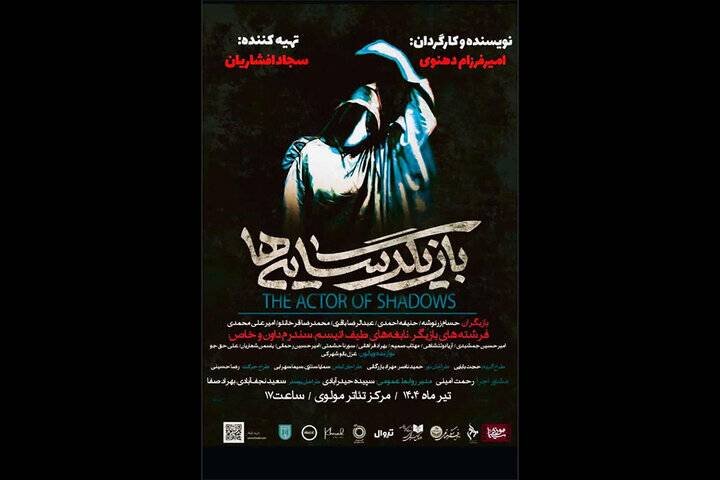Autistic talents take center stage at Tehran’s Molavi Hall

TEHRAN – The play “The Actor of Shadows” will go on stage at Tehran’s Molavi Hall on Friday, featuring talented actors with autism and other special needs.
Written and directed by Amir Farzam Dehnavi and produced by Sajad Afsharian, this innovative production aims to showcase the abilities of gifted individuals with diverse abilities on the theatrical stage, IRNA reported on Wednesday.
This production explores therapeutic approaches such as theater therapy, music therapy, and art therapy, featuring a talented group of artists with autism, Down syndrome, and other special abilities, the report added.
Main cast members include Hesam Zarnouesh in the role of Carl Gustav Jung, Abdolreza Baqeri and Mohammad Qarakhanllou sharing the role of William Shakespeare, Hanifeh Ahmadi as Shadow, and Amir Ali Mohammadi as Hamlet.
Inspired by Carl Gustav Jung’s Shadow theory in psychoanalysis and utilizing Method Acting techniques, the play offers a profound, human, and inner experience of confronting darkness and light within—depicted through humor and art.
Carl Gustav Jung, a renowned Swiss psychiatrist and psychoanalyst, introduced the concept of the Shadow as a fundamental element of his analytical psychology.
The Shadow represents the unconscious part of the personality that contains repressed, denied, or suppressed aspects of oneself. These traits often include impulses, desires, emotions, or behaviors that an individual deems unacceptable or incompatible with their conscious self-image.
Jung believed that the Shadow is formed through social conditioning, personal experiences, and moral standards that lead individuals to reject certain parts of their personality. While the Shadow can harbor negative qualities such as anger, greed, or jealousy, it also encompasses positive traits that are simply hidden or unacknowledged, like creativity or spontaneity.
Integrating the Shadow is essential for achieving psychological wholeness, a process Jung called “individuation.” This involves becoming aware of and accepting these hidden aspects, rather than suppressing them, which can lead to inner conflict or projection—where individuals attribute their unwanted traits to others.
Recognizing and confronting the Shadow allows for personal growth, authenticity, and self-awareness. It encourages individuals to accept their whole selves, including the less desirable parts, leading to a more balanced and integrated personality. Jung’s Shadow theory remains influential today, emphasizing the importance of self-examination and embracing one’s entire being to attain psychological harmony and deeper understanding of oneself.
SAB/
